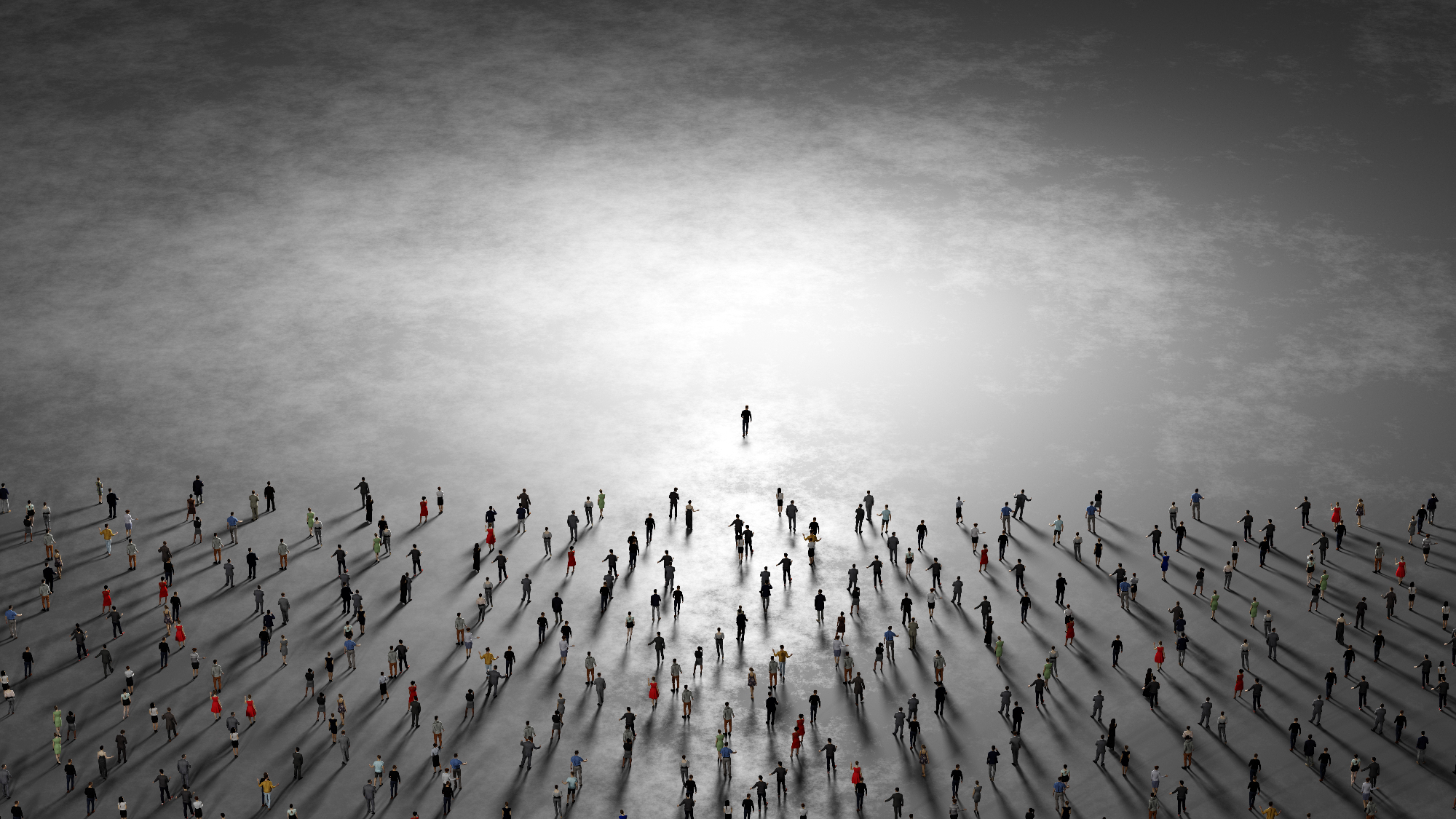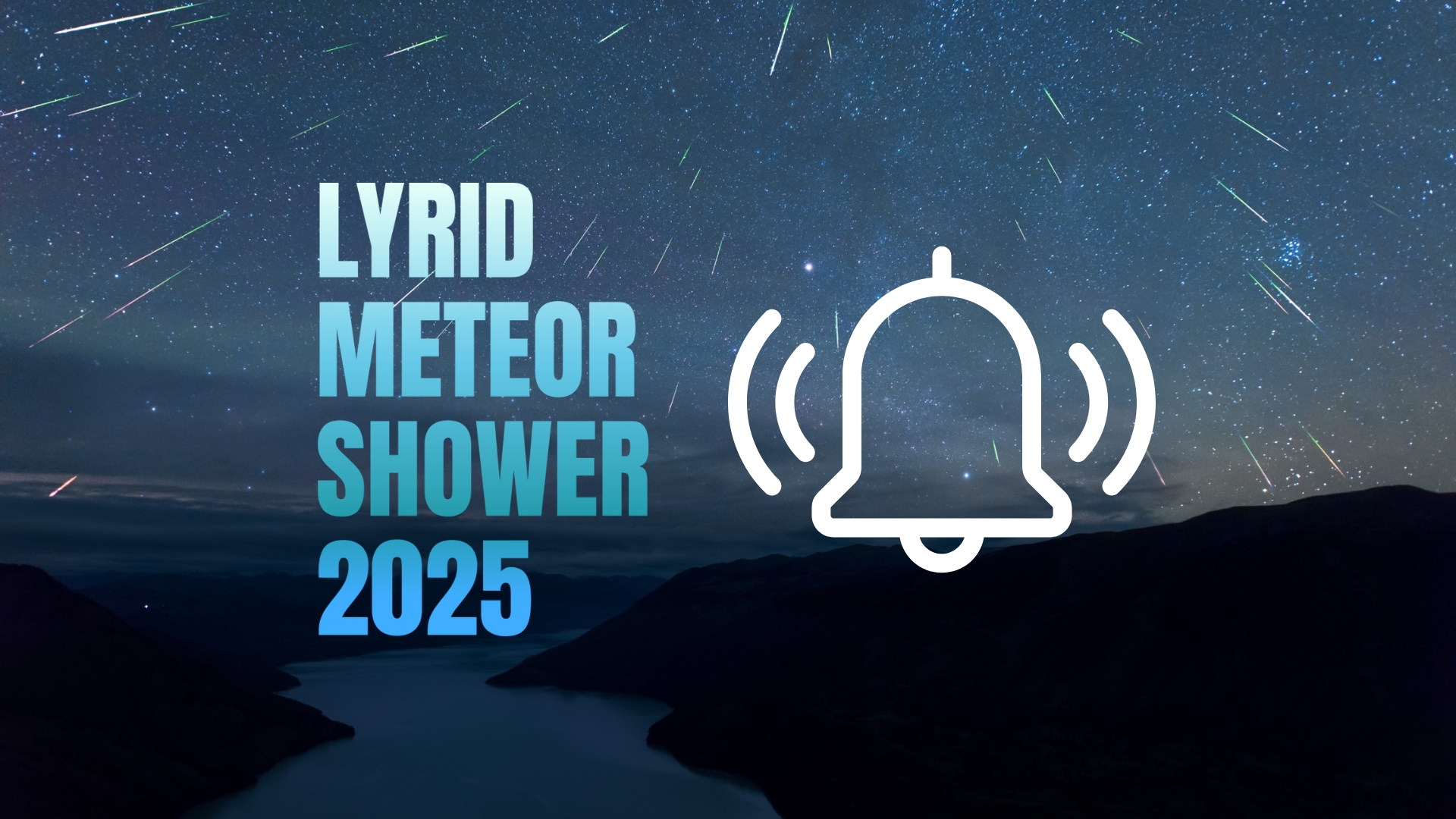Astronomy has a bullying and harassment issue: 'Results presented in this report are bleak'
The Royal Astronomical society calls its latest bullying and harassment report a "damning" one.

After surveying 661 employees affiliated with astronomy and geophysics professions, the Royal Astronomical Society (RAS) has stressed an "urgent" need to address bullying and harassment across the fields.
In short, 44% of respondents reported suffering in the workplace during the two years preceding the survey, and 65% of those respondents said reported concerns were either "ignored" or that their reports were unsatisfactorily handled. To be clear, the survey was conducted in 2020, and a soft-launch of the data was released in 2021. However, a full-fledged analysis of the results that includes recommendations for how to move forward from the glaring issues, dubbed the Bullying and Harassment Report 2023, was just published on May 17.
"The results presented in this report are bleak," Emma Bunch, the RAS president between 2020 and 2022, wrote in the report. "They form a powerful case for change."
Related: NASA Launches Anti-Harassment Campaign
For example, there's a response that states "one person who bullied me is on the committee in charge of upholding the code of conduct" — and that's just a taste of several anonymous quotes that speckle the report in order to illustrate the breadth of worries found within. Others express how those in positions of power and influence are perceived as "invincible" and are not punished — still another says supervisor relationships make reporting or whistleblowing difficult.
"The questions around reporting, and the awful cases where people report, aren't taken seriously," Sheila Kanani, the Education, Outreach and Diversity officer at the RAS and one of the report's authors, told Space.com about what she believes is the most worrying aspect of these results. "Then, the perpetrator goes on to have an exceptional career and the victim is forced out of the field. I hate feeling so helpless."
Not a new problem
Arguably, the reinvigoration of this report comes during a weak point for astronomy professions as a whole in terms of bullying allegations. A lengthy late-2023 article published in Ars Technica, for instance, called on court cases, European Space Agency (ESA) documents and personal ESA employee accounts to reveal a troubling pattern of bullying at the agency. ESA, according to that article, denied the allegations, but physical and spoken sources cited by the author raise clear doubts.
Get the Space.com Newsletter
Breaking space news, the latest updates on rocket launches, skywatching events and more!
A little earlier, in 2020, Lund University in Sweden performed two independent investigations that revealed two top astronomers at the institution, Sofia Feltzing and Melvyn Davies, had bullied colleagues. The duo appeared to have victimized or discriminated against their peers as well, yet the university found that a solution wasn't identified quickly enough despite numerous complaints. In 2021 alone, former SpaceX employees publicly shared allegations of sexual harassment in the workplace, as did a group of current (at the time) and former Blue Origin employees. And just this year, former SpaceX employee Michelle Dopak sued SpaceX for violations such as sexual discrimination and retaliation.
"It is a very male-dominated field, very competitive, and with little job security," Kanani suggested of why the problem appears to be recurring in astronomy professions specifically. "That makes people angrier and more difficult to work with. Maybe because it is an old field, where things like a good workplace environment weren't taken into account when things started out."
"Also," she added, "universities as a whole suffer from bullying and harassment, with difficult supervisor-student relationships and no training in things like how to be an effective manager."
It is thus unsurprising that the RAS has decided to reiterate this bullying survey, particularly while suggesting new recommendations for paths forward.
For a quick snippet, some of those recommendations include encouraging people to join unions, scheduling social lunches and keeping up with regular trainings as well as updating those trainings as needed. Updates are probably key, however, as one anonymous respondent had stated: "They try by doing all the recommended trainings and reporting systems. It fails still."
"The current issue with training is that senior management doesn't think they have to go to the training sessions, but actually it is them who we need to target!" Kanani said. "We should also use mandatory training as a way to be accepted into membership organizations like the RAS."
Other recommendations, however, would likely have more active results, such as making reporting procedures more transparent and implementing a hard timeline during which a report must be addressed.
A "damning" report
For context, the 2020 RAS survey involved questions such as: "How often, if at all, have you been personally subjected to any type of bullying and harassment in your workplace in the last 12 months" and "if you have not been bullied or witnessed bullying, harassment or other unwanted behaviour, would you feel confident reporting it if you ever did?"
It was passed out by the RAS through email to "members, points of contact in universities, to space agencies and to industry," according to the report, which helps paint a picture of the sorts of professions represented. Per Kanani, some of the respondents also specifically said they worked for NASA or ESA.
"We also promoted the survey through the RAS website and social media accounts," RAS officials said.
To the former of those aforementioned questions, 56% of subjects responded they'd "never" personally been subjected to any type of bullying and harassment in the workplace during the preceding year. However, 41% responded that they'd been subjected to some type of bullying or harassment during this time period, 29% said they'd experienced it less often than once per month, 6% at least once per fortnight, 5% at least once per week and 1% said they were bullied or harassed every day at work.
A sole percent may not sound like a lot, but in a sample size of 661 people, that means about six people were bullied or harassed in their workplace every single day. It is for such reasons that RAS blatantly calls the report a "damning" one.
"The evidence in this report is a wake-up call to everyone in the world of astronomy and geophysics," RAS president Mike Lockwood said in a press release put out by the society. "The first step to solving any problem is to admit that there is one, and to gather evidence about the scale and nature of it. Now we have done that, it is clear the issue is both insidious and systemic."
Perhaps the worst aspect of the report relates to the demographics of those bullied.
Women and non-binary people in the field were 50% more likely than men to be harassed or bullied; 12% of bisexual astronomers reported being bullied at least once a week; 5% of lesbian, gay, bisexual and queer astronomers and geophysicists were bullied in the 24 months preceding the survey; and younger people in relatively "precarious" stages of their career were more likely to report being bullied and harassed. The latter group was dictated by whether a respondent was a student, on a temporary contract, or on a permanent contract.
Disabled, as well as Black and minority ethnic astronomers and geophysicists were also found to be 40% more likely to be bullied than their non-disabled and white counterparts.
With this in mind, it is also worth considering that 87% of respondents were white, 10% were Black, Asian and minority categories (including multiple ethnic and Black Caribbean), and 3% didn't disclose their ethnicity. 80% described their sexual orientation as heterosexual/straight, 7% as bisexual and 3% as gay/lesbian. Big picture-wise, not only does this exacerbate the findings to some degree, but it also depicts a severe lack of diversity in the surveyed professions that likely extrapolates to a severe lack of diversity in the general field.
This is unsurprising as well. A stark 2019 report released by the American Institute of Physics, for example, found that African Americans are incredibly underrepresented in the field of astronomy due to systemic issues and the 2021 Decadal Survey released by the National Academies of Sciences, Engineering and Medicine emphasized that racial diversity in the astrophysical sciences is "abysmal." In 2020, Yale University astronomy students spoke out against institutional racism and a study surveying over 400 people has shown how women of color in astronomy experience disproportionately high amounts of discrimination.
In addition, the dynamics of the sample size are why the report includes a disclaimer that a total of 661 respondents is a strong-enough pool for robust statistical analysis, yet "we cannot be certain that it is representative of our community and therefore our findings are only indicative of wider issues."
"This response rate," the report says, "also means we cannot look at intersectional issues whilst preserving anonymity."
However, as the report states as well, the data is largely comparable to the results of the University College Union's 2013 report, which surveyed a staggering 14,667 participants working in higher education. In that report, 48% of respondents reported being subjected to bullying at work.
"Ultimately I don’t think it is just a 'space sector' problem," Kanani said. "I think if we look, we will find it everywhere."
Seeing as the survey was originally dispersed in 2020, it also bears wondering whether anything has improved for astronomy workplaces during the last several years — especially considering how striking the results were.
"Anecdotally, I do think things have changed for the positive already," Kanani said, pointing out how she believes bullying and harassment are now discussed more in the field, that bystander and allyship training seem to be entering the conversation and that reports are perhaps more likely to occur. Still, she emphasized, "we've not resurveyed yet, so I can't be sure."
"That said," she added, "since 2020, there has been a lot more work conducted online, so perhaps the focus has shifted to online trolls, and the like. The world is also more unstable, particularly for students and those on temporary contracts, and they are some of the people who disclosed a higher number of issues anyway."
A full version of the report and all associated statistics can be viewed here.
Join our Space Forums to keep talking space on the latest missions, night sky and more! And if you have a news tip, correction or comment, let us know at: community@space.com.

Monisha Ravisetti is Space.com's Astronomy Editor. She covers black holes, star explosions, gravitational waves, exoplanet discoveries and other enigmas hidden across the fabric of space and time. Previously, she was a science writer at CNET, and before that, reported for The Academic Times. Prior to becoming a writer, she was an immunology researcher at Weill Cornell Medical Center in New York. She graduated from New York University in 2018 with a B.A. in philosophy, physics and chemistry. She spends too much time playing online chess. Her favorite planet is Earth.
-
Gibsense I think this problem permeates throughout our society. There is almost a tension between Discipline and Controlling power. The controlling power can be atrophied and discipline overdone. The anarchic tendencies can get the upper hand. Nothing unusual in the field of Astronomy is worse than elsewhere. Nevertheless, it is a problem.Reply
As for sexual harassment, no comment is necessary. -
billslugg "one person who bullied me is on the committee in charge of upholding the code of conduct"Reply
There's the problem right there. Spineless managers often delegate distasteful tasks to a committee. The boss is no longer responsible, the committee has no real power, nothing gets done, everyone's backside is covered. Only the employees suffer.
Same thing happens when a person is appointed safety manager and reports directly to the CEO. Now that there is someone at such a high level in charge, we don't have to do anything at the lower level.
Conduct codes, safety are managed locally by principles established at the highest level. No "special committees" Or "special managers" needed.
Compliance falls within the disciplinary system, which should establish clear boundaries, be stepwise and well documented. -
billslugg The higher levels of academia/science are now being populated by people who grew up with social media. Such media gives a planet wide microphone to every kid, has no accountability and results in dysfunctional adults. We are currently in a crisis, our latest generation unable to function interpersonally. They and their children have a brutal life ahead of them.Reply -
Gibsense Reply
I am a bit more hopeful but surely it is much tougher on the young now. Yesterday I was told what was the truth. I accepted it as I was taught to do. We referenced decisions to the principles we were given. No problem.billslugg said:The higher levels of academia/science are now being populated by people who grew up with social media. Such media gives a planet wide microphone to every kid, has no accountability and results in dysfunctional adults. We are currently in a crisis, our latest generation unable to function interpersonally. They and their children have a brutal life ahead of them.
Today the truth is uncertain. We are not taught principles that all cultures accept. Confusion is rife. But, maybe, just maybe, the young can cope and discern truth by trial and error and have more resilience than we give credit for.
Hope is eternal -
Unclear Engineer There is definitely a problem with bullying in most of society, these days.Reply
Much of that has to do with loss of punishments for misbehaviors. And, that applies to both the criminals on the streets and the bullies in schools as well as the bullies in corporate and political organizations. It seems to begin in the homes of people when they are children, but can come about from both extremes of lack of discipline to discipline that is itself bullying.
That said, it is still hard to figure out how much of articles like this is about real bullying, because "victimhood" has also become a path to "success" in many organizations where there is an attempt to deal with bullying.
I have found bullies of all sexes/genders, races, religions, social statuses, etc. etc.
And, I have seen all sorts of bullying claims that were completely bogus.
I have even seen bullies claim to be victims.









